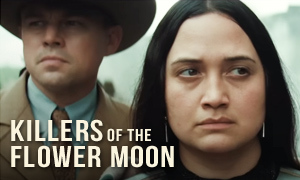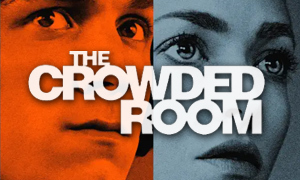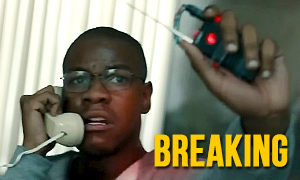We Own This City: History vs. Hollywood
Jon Bernthal
Born: September 20, 1976
Birthplace:
Washington, D.C., USA
Sgt. Wayne Jenkins
Born: June 1980
Birthplace: Middle River, Maryland, USA
Bio: Leader of the Baltimore PD's Gun Trace Task Force
Sentence: 25 Years
McKinley Belcher III
Born: March 23, 1984
Birthplace:
Atlanta, Georgia, USA
Det. Momodu 'G Money' Gondo
Born: December 1982
Birthplace: Maryland, USA
Bio: Member of Gun Trace Task Force
Sentence: 10 Years
Darrell Britt-Gibson
Born: May 8, 1985
Birthplace:
Silver Spring, Maryland, USA
Det. Jemell Rayam
Born: July 1980
Birthplace: USA
Bio: Member of Gun Trace Task Force
Sentence: 12 Years
Bobby J. Brown
Born: February 5, 1969
Birthplace:
Washington, D.C., USA
Sgt. Thomas Allers
Born: June 5, 1968
Birthplace: USA
Bio: Former Head of the Gun Trace Task Force
Sentence: 15 Years
Josh Charles
Born: September 15, 1971
Birthplace:
Baltimore, Maryland, USA
Det. Daniel Hersl
Born: November 5, 1969
Birthplace: USA
Bio: Member of Gun Trace Task Force
Sentence: 18 Years
Rob Brown
Born: March 11, 1984
Birthplace:
Harlem, New York, USA
Det. Maurice Ward
Birthplace: USA
Bio: Member of Gun Trace Task Force
Sentence: 7 Years
Robert Harley
Det. Marcus Taylor
Birthplace: USA
Bio: Youngest Officer on the Gun Trace Task Force
Sentence: 18 Years
Ham Mukasa
Detective Evodio Hendrix
Born: February 18, 1985
Birthplace: Cleveland, Ohio, USA
Bio: Member of Gun Trace Task Force
Sentence: 7 Years
Jamie Hector
Born: October 7, 1975
Birthplace:
Brooklyn, New York, USA
Det. Sean Suiter
Born: October 6,1974
Birthplace: Washington, D.C., USA
Death: November 16, 2017, Baltimore, Maryland, USA (gunshot wound to the head)
Bio: Homicide Detective
David Corenswet
Born: July 8, 1993
Birthplace:
Philadelphia, Pennsylvania, USA
Det. David McDougall Jr.
Born: September 1984
Bio: His investigation of a heroin ring led to the discovery of the corrupt officers.
Delaney Williams
Born: December 12, 1962
Birthplace:
Washington, D.C., USA
Commissioner Kevin Davis
Born: abt 1959
Birthplace: College Park, Maryland, USA
Bio: Police Commissioner During Gun Trace Task Force Scandal
Dagmara Domińczyk
Born: July 17, 1976
Birthplace:
Kielce, Swietokrzyskie, Poland
FBI Agent Erika Jensen
Bio: Special Agent who Investigated the Gun Trace Task Force
Don Harvey
Born: May 31, 1960
Birthplace:
St. Clair Shores, Michigan, USA
Sgt. John Sieracki
Bio: FBI Task Force Officer and Baltimore PD Sergeant
Is Sgt. Wayne Jenkins a former Marine?
Yes. While researching the We Own This City true story, we confirmed that the real Wayne Jenkins had spent three years in the Marines before joining the Baltimore Police Department in 2003. He had been stationed in North Carolina and would frequently make trips home to visit his family and his high school sweetheart Kristy, the young woman who would become his wife.
After becoming a Baltimore police officer, it took him less than two years to earn a spot in a plainclothes "flex unit" that favored his dynamic approach. He was given leeway to roam and began to emerge as a leader.
How many times had Sgt. Wayne Jenkins been sued as a member of the Baltimore Police Department?
In researching how accurate is We Own This City on HBO Max, we learned that prior to heading up the Gun Trace Task Force in 2016, Jenkins had been sued for misconduct at least four times from 2006 to 2009 as a member of other plainclothes units. He had also been scrutinized by city prosecutors. The plaintiffs won three of the misconduct lawsuits, either by way of the city settling the case or a jury siding with them, resulting in $90,000 in taxpayer payouts. Despite this, the lawsuits resulted in no internal punishment by the department.
Prior to running the Gun Trace Task Force, had Sgt. Wayne Jenkins been charged with misconduct for planting drugs in a suspect's car?
Yes. A surveillance video had appeared to catch Jenkins in the act of planting evidence in a suspect's car. In 2014, prosecutors investigated and took their evidence before a grand jury, but ultimately, they didn't have enough to get an indictment. The video did result in the Baltimore Police Department opening a rare disciplinary case against Jenkins. In 2015, the department charged him with misconduct and Internal Affairs recommended that he be suspended without pay and demoted. However, the punishment was never enforced due to the fact that then-Deputy Commissioner Darryl De Sousa stepped in to prevent it. Ironically, De Sousa, who later became the police commissioner, ended up going to prison on federal tax charges.
Did Sgt. Wayne Jenkins help to save injured police officers during the Freddie Gray riots?
Yes. In 2015, Baltimore erupted into a week of riots after the death of Freddie Gray while in police custody. Gray, a 25-year-old black man, had been arrested on April 12, 2015 for having a switchblade knife. While he was being transported in the back of a police van, he fell over at some point during the ride. He hit his head and broke his neck, damaging his spinal cord and falling into a coma. Gray eventually succumbed to his injuries, passing away several days later on April 19, 2015.
Upset citizens took to the streets to protest Gray's injuries and subsequent death, accusing the police of murder. The protests evolved into riots, resulting in an estimated $20 million in damage (The Baltimore Sun). During the riots, Sgt. Wayne Jenkins (portrayed by Jon Bernthal), then 34, commandeered a state prison van and assisted in pulling injured officers inside. He then instructed a detective to transport them to the ER while he stayed and joined the Baltimore PD's front lines. He was awarded a bronze star for his role in saving the officers.
Is the real Wayne Jenkins a trained boxer?
Yes. A We Own This City fact-check confirms that Jenkins had taken up boxing while he was in the Marines and he didn't hesitate to use his fists in the line of duty. In 2005, when a drunk man named Tim O'Connor stumbled out of a bar and yelled an expletive at Jenkins' supervisor, Sgt. Michael Fries, who the man knew, Jenkins and other officers tackled O'Connor and Jenkins got on top of him, unleashing a barrage of punches. O'Connor was left with a bloodied face and a fractured eye socket. -The Baltimore Sun
Did Sgt. Wayne Jenkins steal drugs from criminals and offload them to dealers?
Yes. For example, the very same day that Jenkins helped pull injured officers into a van during the 2015 Baltimore Riots, he supposedly later met with a drug-dealing bail bondsman named Donald Stepp to offload prescription drugs he had confiscated from looters (Jenkins denies this and says that Stepp made it up, though he does admit to taking stolen drugs to Stepp to sell on other occasions). The bondsman would sell the drugs and then split the profits with Jenkins. This was prior to Jenkins carrying out similar schemes on a larger scale as the leader of the Baltimore Police Department's Gun Trace Task Force, which he was appointed to head in 2016. -BBC
Did the Gun Trace Task Force use seatbelt violations to initiate stops?
Yes. The We Own This City true story confirms that this was a common tactic that the real Gun Trace Task Force used to initiate stops. They would then claim they found something in the car and proceed to use the individual's driver's license or documents in their car to find out where they lived. Later, they would raid the home without a warrant, confiscating money, drugs, and weapons, which they kept to profit from. They were even known to stop people for seatbelt violations while they were pulling away from the pump at gas stations.
Was Officer Wayne Jenkins praised and promoted by the Baltimore Police Department?
Yes. Sgt. Jenkins' supervisors at the Baltimore PD raved about him. Lt. Marjorie German told Internal Affairs that she believed Jenkins was "the best gun cop this department has ever seen," going on to say that he was given a long leash because of the results he got for the department. He received a bronze star for his role in the 2009 recovery of $1 million worth of cocaine (41 kilograms) from a man's truck. At the time, it was the largest seizure in department history. He was promoted to sergeant in November 2012. "Command created a monster," she added, "and allowed it to go unchecked."
Sgt. Wayne Jenkins had become known for his uncanny effectiveness at capturing suspected drug dealers, their stashes, and getting their illegal firearms off the streets. The department often overlooked the bending and breaking of the rules it took to make that happen and instead focused on the results. Other officers jockeyed for a spot in his unit. "If Wayne Jenkins asked you to come work for him, you felt honored," said Detective Maurice Ward, who was sentenced to seven years for committing crimes alongside Jenkins.
It wasn't just members of the department who praised Jenkins. While exploring the We Own This City fact vs. fiction, we learned that Mayor Stephanie Rawlings-Blake (in office 2010-2016) held a news conference to trumpet one of his plainclothes' unit's sizeable drug busts. In a city with out-of-control crime, Jenkins was helping to make everyone look good. -The Baltimore Sun
Did the Baltimore Police Department ignore signs of misconduct?
Yes. As stated above, Sgt. Wayne Jenkins' aggressive style got results. Other officers admired his "cowboy" approach, including his large number of citizen stops. While Jenkins' stops often weren't by the book and frequently violated citizens' rights, they sometimes resulted in information that helped lead the officers up a chain of drug dealers. This led to many large-scale drug seizures. Though Jenkins received numerous citizen complaints, success and misconduct in the Baltimore Police Department were often not mutually exclusive, especially for the plainclothes units. Bending the rules yielded results that adhering to them did not.
Is Wunmi Mosaku's character, Nicole Steele, based on a real person?
No. Following the death of Freddie Gray while in police custody, the Department of Justice did conduct a more than year-long civil rights investigation into the Baltimore Police Department. Like Wunmi Mosaku's character, DOJ attorney Nicole Steele, they did focus on establishing a federal consent degree whereby a monitoring team and a federal judge would watch over the department in an effort to enforce reform.
However, we found no evidence of an attorney named Nicole Steele having worked for the DOJ, and she doesn't appear anywhere in Justin Fenton's book on which the series is based. The character seems to be at best a composite of some of the members of the DOJ team who conducted a lengthy investigation into the Baltimore Police Department after Freddie Gray's death.
Did Sgt. Wayne Jenkins and his detectives carry BB guns to plant at crime scenes?
Yes. The We Own This City true story reveals that this was one of the tactics that the real Wayne Jenkins had instructed the detectives under him to use in order to plant evidence. For example, in early 2014, Sgt. Jenkins and Detective Ben Frieman tailed a 31-year-old black male named Demetric Simon, who was driving an expensive car through Northeast Baltimore. Simon, who had drugs on him, stopped the car and began to run away on foot. Jenkins chased him down in his unmarked Dodge Avenger and struck him in someone's front yard.
Simon later claimed that he fled because he was worried that Jenkins and Frieman weren't real police officers. Sgt. Jenkins, knowing that intentionally striking an unarmed civilian with his vehicle didn't look good, called his friend, Sgt. Keith Gladstone, and had him come to the scene to plant a BB gun under a nearby vehicle. Jenkins then claimed that Simon had pointed the gun at Detective Frieman and that he chased Simon down to neutralize the threat. However, Frieman later told Internal Affairs that he never saw a gun in Simon's hand, nor were they in any sort of imminent danger from Simon.
How much money did the officers from the real Gun Trace Task Force steal?
While analyzing the We Own This City fact vs. fiction, we confirmed that like in the HBO Max miniseries, the corrupt officers stole hundreds of thousands of dollars. In one instance, they stole $100,000 from a high-level drug trafficker's safe (pictured below). In another, they took $25,000 from a home without charging anyone with a crime. They also made significant amounts of money off the drugs that they stole.
How many officers were arrested in relation to the Gun Trace Task Force's corruption?
On March 1, 2017, seven officers from the Baltimore Police Department's Gun Trace Task Force were arrested on federal racketeering charges. They stood accused of carrying out numerous robberies, in addition to extortion and overtime fraud, the latter of which resulted in Jenkins himself receiving paychecks that totaled over $170,000 in a single year.
Were all the members of the Gun Trace Task Force charged with crimes?
No. While investigating how accurate is We Own This City on HBO Max, we confirmed that at least one of the men who had been led by Jenkins on the task force, Detective John Clewell, was never charged with a crime. Clewell is portrayed by Victor Dobro in the series, who himself has more than 20 years of experience in law enforcement, including as a police academy instructor and in S.W.A.T.
What effect did the arrests of the officers have on cases that had relied on their testimony?
As a result of the Gun Trace Task Force scandal, the Baltimore State's Attorney's Office had to throw out 123 cases as of December 2017 that had involved the officers (FOX 45). Many of those cases had relied on their testimony. In 2019, State Attorney Marilyn Mosby said that nearly 800 cases that were tainted by the task force might be thrown out and the convictions overturned (CBS Baltimore). Because of the Gun Trace Task Force's corruption, many of the criminals they had gotten off the streets walked free, which was a huge blow to the department's crime-fighting efforts.
Ironically, in early 2022, State Attorney Marilyn Mosby, who had led the charge to right the wrongs of the task force, was herself indicted by a federal grand jury on a perjury charge.
What was the Gun Trace Task Force's punishment for robbing people and dealing drugs?
While conducting the We Own This City fact-check, we learned that the real Gun Trace Task Force's punishment was handed down to eight of its members as follows:
- Sgt. Wayne Jenkins, the task force ringleader, pleaded guilty and received 25 years behind bars. He is being held in a federal prison in South Carolina.
- Sgt. Thomas Allers was sentenced to 15 years in prison for racketeering conspiracy and racketeering offenses, including nine robberies.
- Detective Evodio Hendrix and Detective Maurice Ward pleaded guilty. They were both sentenced to seven years in prison.
- Detective Momodu Gondo pleaded guilty and was sentenced to 10 years in prison.
- Detective Jemell Rayam pleaded guilty and was sentenced to 12 years in prison.
- Detective Daniel Hersl and Detective Marcus Taylor pleaded innocent and their cases went to trial. They were found guilty and were sentenced to 18 years in prison.







